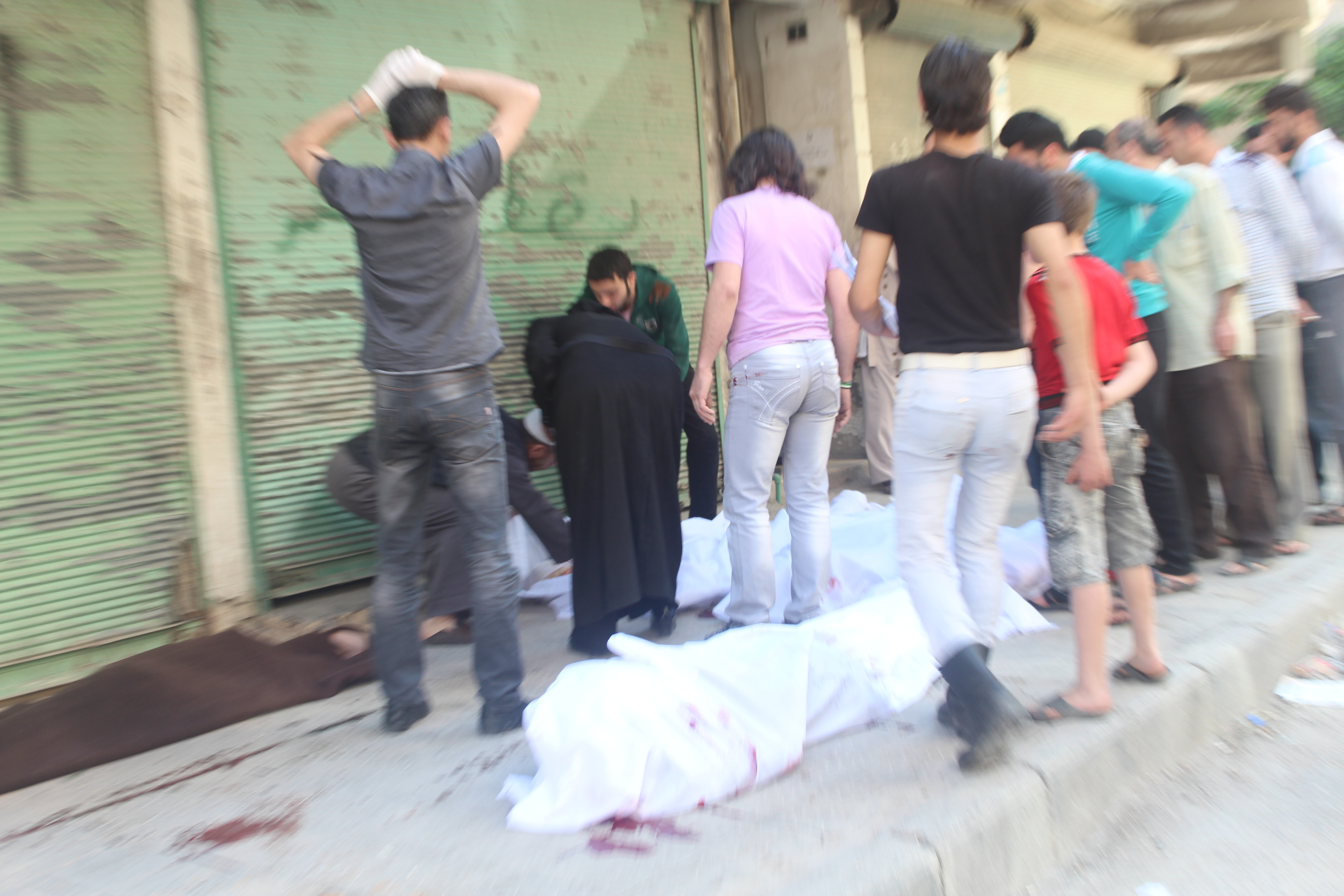Air Raids Just Routine in Besieged Syrian Town

Nothing seemed different about that particular morning in Douma. The cold night was over, and the sounds of artillery fire from government forces had subsided.
At around eight in the morning, I was standing at our front door chatting with my cousins who live in the same building. Suddenly we heard two loud explosions. A plane had dropped two bombs on our neighbourhood, and the noise was so deafening I felt as if my head would explode.
“The pilot has started his rounds early today,” my cousin said sarcastically.
“He’s started his shift, and we should start ours,” I replied. “It’s time for work.”

My mother tried to persuade me not to go.
“Something doesn’t seem right today,” she said. “You should stay at home, in case something bad happens.”
I told her not to worry, “Nothing will happen, God willing.”
I wanted to go out so I could drop into an internet café and catch up on the news at some point.
She finally gave in, praying that God would protect me, and I set off to work. I arrived there ten minutes later just as a second air raid started. Four bombs dropped by a plane landed in the neighbourhood, followed by two artillery shells.
Panic broke out as people started shouting and rushing to hide in the basement of our office.
“Go back home,” my colleague Abu Ali told me. “It doesn’t look like this day is going to end well.”
I left the office, but instead of going home I went to my friend Walaa’s house. Douma was suffering from electricity shortages and my family couldn’t afford to buy a generator. I didn’t want to spend the entire day disconnected from the world and I knew I would be able to read the news online at Walaa’s house as her family owned a generator.
I made my way there as yet another airstrike took place and the sound of ambulance sirens filled the streets.
When I got there, I found Walaa in a room on the ground floor along with the rest of her family and other relatives, seeking shelter from the bombs.
They were happy to see me, and asked what was happening outside. I told them where the bombs had fallen, having gleaned this information from the shouts of men I passed on the street.
The loudspeakers of our neighbourhood mosques boomed into life, broadcasting messages urging people to abandon their homes and hide in basements. People tried to keep calm, but panic was clearly spreading. Although we had become accustomed to death, the sound of an explosion remains as terrifying as the casualties it causes.
A plane soared in the sky above us, as if on display at an air show. But the criminal inside it was showering our neighbourhood with bombs.
Below him, the people of Douma were weary of the fighting and hunger they had suffered. Many of their young children had grown up knowing nothing but war.
By midday, we could hear screams coming from beneath the rubble. Ambulances rushed to several devastated sites. People were trapped underneath what used to be their homes, dying.
Walaa’s family finally turned the generator on, and we all gathered around the TV to watch the news. Despite the gravity of what was happening to us, there was no mention of the day’s attacks. Instead, the news covered speeches held by so-called patriotic opposition figures, and an event which a government supporter – labelled a traitor in this report – had attended.
The only reference to our plight came in a news ticker at the bottom of the screen. It mentioned the number of airstrikes, the targets and the number of lives lost. Syrians were dying by the dozens, and the killing was no longer even newsworthy.
Disappointed, we switched off the TV. I logged on to my Facebook account and started writing my own updates on our situation, and sharing others that had been posted by my friends.
Suddenly, a bomb went off nearby. Children started screaming and the women were equally terrified. Everyone left the room, but I persevered with posting my updates. Only ten-year old Rahaf stayed behind to keep me company.
“Aren’t you scared, aunty?” she asked me with a smile.
“No,” I said, “Death isn’t scary. The only thing that scares me is the thought of seeing you stop smiling.”
At five pm there was another lull in the bombing, so I said goodbye to my friend and ran home to check on my family. They were fine, thank God, but the city had been devastated.
When night fell on Douma, darkness shrouded the scene of the mass killings the town had witnessed that day, and the martyrs were still being counted.
Douma’s people were being punished for the single crime of demanding their freedom. The price they have paid so far has been very high.
Hiba al-Rahman is the pseudonym of a Damascus Bureau contributor living in Douma, Syria.
